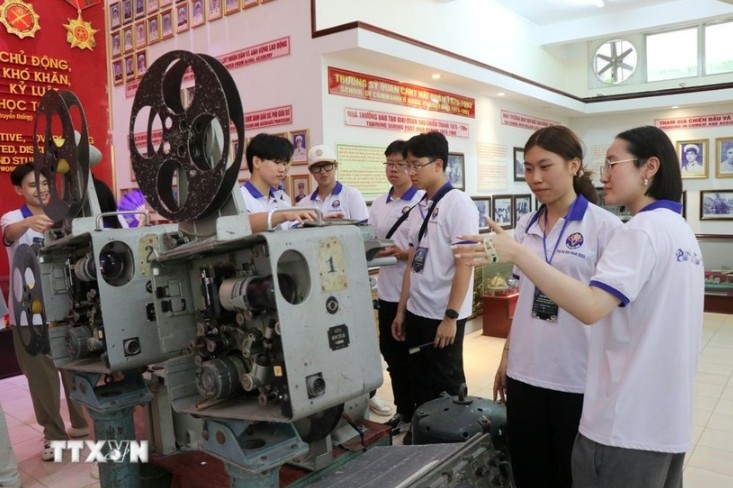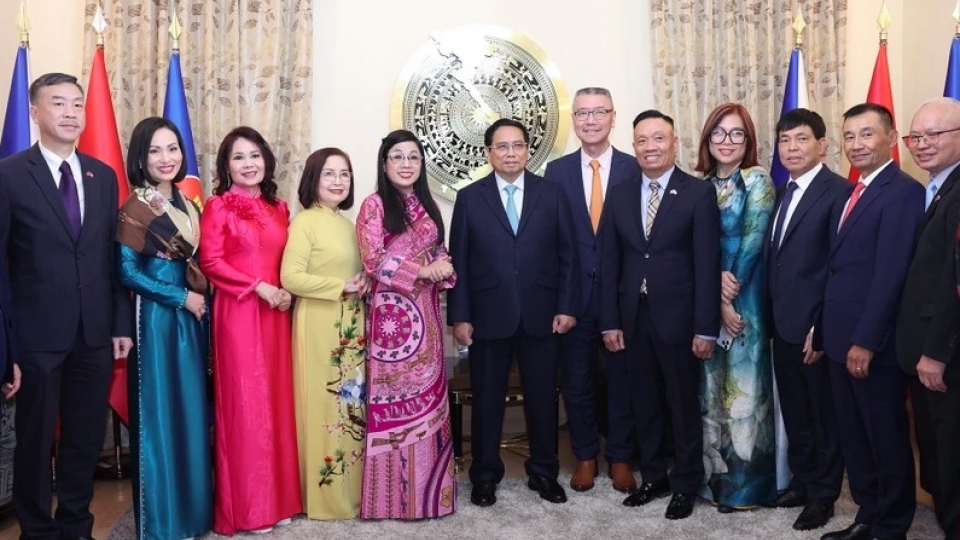Wide doors open for overseas Vietnamese with groundbreaking legal reforms
Vietnam has opened new legal pathways to attract overseas Vietnamese (OV) and high-skilled talents for national development, helping to propel the homeland to a new era – the era of the nation’s rise, according to an official from the Ministry of Foreign Affairs.

At a meeting with the press in Hanoi on July 3, Chairman of the Ministry’s State Committee for Overseas Vietnamese Nguyen Trung Kien highlighted the National Assembly’s recent adoption of the Law on amendments and supplements to several articles of the Law on Vietnamese Nationality, and the Law on Science – Technology and Innovation which create favourable conditions for OV to invest, do business, and contribute their expertise to national development.
A key highlight of the revised nationality law is that it relaxes requirements for OV and their descendants with significant contributions to national construction and defence to obtain the Vietnamese citizenship without proving residency, language proficiency, and financial guarantees. They could submit applications directly through Vietnamese diplomatic missions abroad.
Kien said for those seeking to retain dual citizenship, the law regulates that the retention of foreign citizenship must comply with that country's laws, and the foreign citizenship must not be used to harm the legitimate rights and interests of Vietnamese institutions, organisations, or individuals, and to undermine national security and social order.
Individuals may choose combined Vietnamese and foreign names instead of being required to use their previous Vietnamese names.
The law also expands the right to reclaim Vietnamese nationality for those who lost it and streamlines procedures by cutting the need for certain Vietnamese-issued judicial records.
The official stated that the law demonstrates a breakthrough in the Party and State’s policies, removing bottlenecks and opening up opportunities for the community of six million OV to be back to their roots and contribute to their homeland.
Meanwhile, the Law on Science – Technology and Innovation, Kien said, establishes a legal “sandbox” mechanism that allows the controlled trial of emerging technologies such as AI, blockchain, healthtech, and edtech within defined boundaries before broader rollout.
The law encourages risk-taking research through legal protection for scientists and institutions that follow due procedures and legal framework, even if results fall short of expectations. Besides, Vietnam is shifting from a pre-approval to post-supervision, focusing on transparency, result evaluation, and risk management rather than initial intervention, he said, adding the approach aligns with the flexible and experimental nature of science – technology and innovation.
One of the most significant reforms promotes the commercialisation of research results and protection of technology transfer modes. The law grants research institutions ownership or usage rights to their innovations without requiring approval from superior agencies. Meanwhile, scientists can now receive direct economic benefits from intellectual property, a crucial step towards promoting practical applications and increasing transparency in intellectual property management.
Additionally, the law establishes an ecosystem to support the commercialisation, including technology trading platforms, intellectual property valuation organisation, and technology transfer support centres that effectively connect research with production and business operations.
Kien stressed that the committee will continue working with relevant ministries to concretise these reforms and ensure they are aligned with other legal regulations. He underscored that contributions from abroad are not limited to physically returning to Vietnam but remote ones, including experience exchange, networking, and technology transfer, are valuable.



